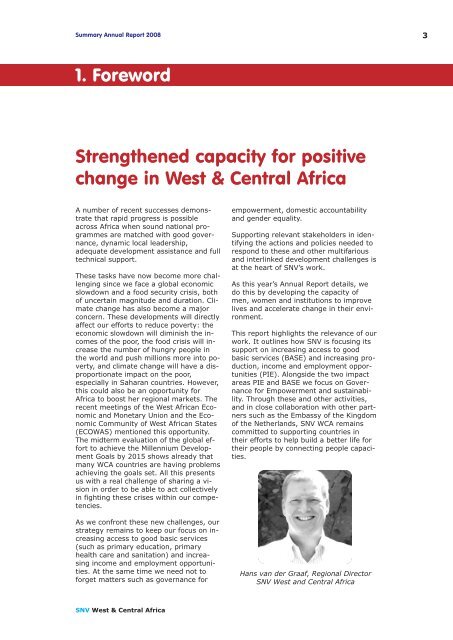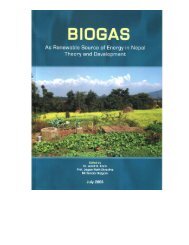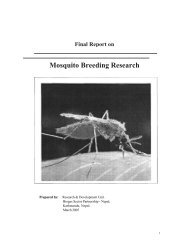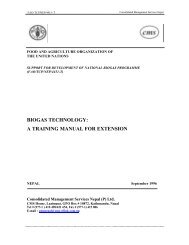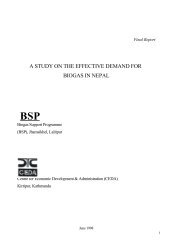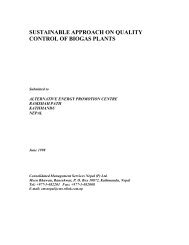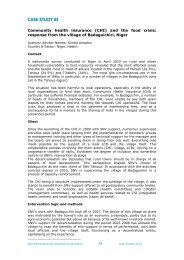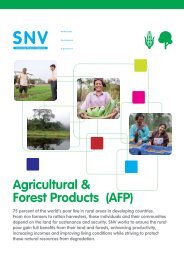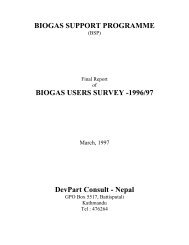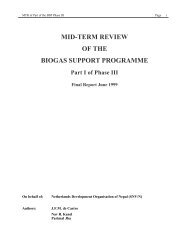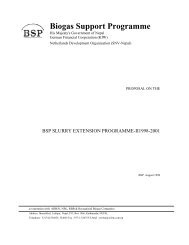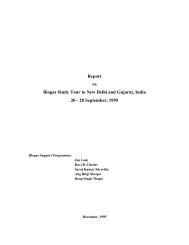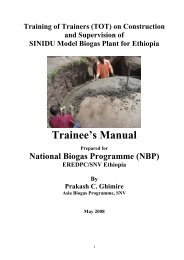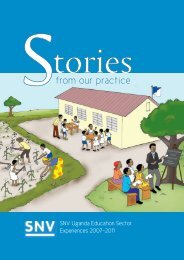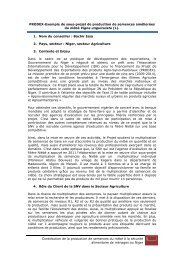download (pdf, 3MB) - SNV
download (pdf, 3MB) - SNV
download (pdf, 3MB) - SNV
You also want an ePaper? Increase the reach of your titles
YUMPU automatically turns print PDFs into web optimized ePapers that Google loves.
Summary Annual Report 2008 3<br />
1. Foreword<br />
Strengthened capacity for positive<br />
change in West & Central Africa<br />
A number of recent successes demonstrate<br />
that rapid progress is possible<br />
across Africa when sound national programmes<br />
are matched with good governance,<br />
dynamic local leadership,<br />
adequate development assistance and full<br />
technical support.<br />
These tasks have now become more challenging<br />
since we face a global economic<br />
slowdown and a food security crisis, both<br />
of uncertain magnitude and duration. Climate<br />
change has also become a major<br />
concern. These developments will directly<br />
affect our efforts to reduce poverty: the<br />
economic slowdown will diminish the incomes<br />
of the poor, the food crisis will increase<br />
the number of hungry people in<br />
the world and push millions more into poverty,<br />
and climate change will have a disproportionate<br />
impact on the poor,<br />
especially in Saharan countries. However,<br />
this could also be an opportunity for<br />
Africa to boost her regional markets. The<br />
recent meetings of the West African Economic<br />
and Monetary Union and the Economic<br />
Community of West African States<br />
(ECOWAS) mentioned this opportunity.<br />
The midterm evaluation of the global effort<br />
to achieve the Millennium Development<br />
Goals by 2015 shows already that<br />
many WCA countries are having problems<br />
achieving the goals set. All this presents<br />
us with a real challenge of sharing a vision<br />
in order to be able to act collectively<br />
in fighting these crises within our competencies.<br />
As we confront these new challenges, our<br />
strategy remains to keep our focus on increasing<br />
access to good basic services<br />
(such as primary education, primary<br />
health care and sanitation) and increasing<br />
income and employment opportunities.<br />
At the same time we need not to<br />
forget matters such as governance for<br />
empowerment, domestic accountability<br />
and gender equality.<br />
Supporting relevant stakeholders in identifying<br />
the actions and policies needed to<br />
respond to these and other multifarious<br />
and interlinked development challenges is<br />
at the heart of <strong>SNV</strong>’s work.<br />
As this year’s Annual Report details, we<br />
do this by developing the capacity of<br />
men, women and institutions to improve<br />
lives and accelerate change in their environment.<br />
This report highlights the relevance of our<br />
work. It outlines how <strong>SNV</strong> is focusing its<br />
support on increasing access to good<br />
basic services (BASE) and increasing production,<br />
income and employment opportunities<br />
(PIE). Alongside the two impact<br />
areas PIE and BASE we focus on Governance<br />
for Empowerment and sustainability.<br />
Through these and other activities,<br />
and in close collaboration with other partners<br />
such as the Embassy of the Kingdom<br />
of the Netherlands, <strong>SNV</strong> WCA remains<br />
committed to supporting countries in<br />
their efforts to help build a better life for<br />
their people by connecting people capacities.<br />
Hans van der Graaf, Regional Director<br />
<strong>SNV</strong> West and Central Africa<br />
<strong>SNV</strong> West & Central Africa


